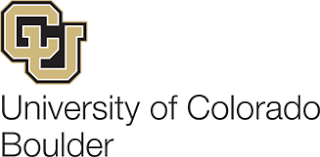CIRES / NOAA-NCEI Space Magnetometer Team Lead
The Cooperative Institute for Research in Environmental Sciences (CIRES) at the University of Colorado at Boulder has an immediate opening for a Research Associate supporting NOAA’s National Centers for Environmental Information (NCEI). This hire will serve as the lead of the Space Magnetometer Team within NCEI’s Space Weather Team. The Space Weather Team works to ensure that current and future space weather sensors on NOAA satellites provide effective operational products for use by the NOAA National Weather Service (NWS) Space Weather Prediction Center (SWPC) and the broader space weather and scientific community. The successful candidate will be an essential member of a team of scientists, analysts, data managers and software developers dedicated to diverse projects to calibrate, validate, process, disseminate and do research with NOAA’s space weather data. We work on multiple satellite programs including the GOES-R mission series of four geosynchronous spacecraft, and the Space Weather Follow On-Lagrange 1 (SWFO-L1) mission that is scheduled for launch in September 2025.
This hire will lead a group of about six people on the Space Magnetometer Team. This hire will be involved in and guide others on projects including on-orbit calibration and validation of satellite magnetometers, development of ground-based data processing algorithms, public data product stewardship, research-to-operations projects, and spacecraft magnetometer instrument science efforts. They will provide solar wind/heliophysics subject matter expertise and are also expected to undertake scientific research, publish results in scientific journals, and apply for grants.
What Your Key Responsibilities Will Be
- Provide scientific and technical leadership to a team of scientists, science analysts and software developers on all aspects of magnetic fields and magnetometers for NOAA satellite missions (35%).
- Develop and implement calibration and validation activities for NOAA's space-based magnetometers and their ground processing algorithms (15%).
- Determine, implement, and document new algorithms and modifications to existing ground-processing algorithms (10%).
- Review algorithm, hardware, validation, and operations documentation and participate in NOAA-NASA pre- and post-launch reviews (10%).
- Attend instrument design reviews, observe spacecraft magnetic fields testing, and participate in spacecraft magnetic cleanliness working groups (10%).
- Serve as a scientific and technical interface to NOAA satellite programs, advocating for the quality of NOAA's space weather data, and ensuring that the magnetometer data meets the needs of NOAA and the broader space science community (5%).
- Present observations and science results from NOAA’s satellite magnetometer instruments at scientific meetings and in peer-reviewed publications (5%).
- Propose, supervise, and perform independent research (5%).
- Serve in supervisory and Space Weather Team management roles (5%).
What We Require
- Ph.D. in Physical Science, Engineering or similar technical discipline.
- At least four years of postdoctoral experience in satellite magnetometer design, scientific algorithm development, and scientific research with space magnetic fields data.
- Due to the requirement to access export-controlled data and information, only U.S. citizens, lawful permanent residents, or other protected individuals may apply.
What You Will Need
- Experience working with and calibrating space magnetic fields data.
- An understanding of the Earth’s magnetosphere and heliospheric magnetic fields.
- Experience with space-based magnetometers and an understanding of the impacts of spacecraft generated fields.
- Excellent oral/written communication skills and capacity for working in a team environment.
- Demonstrated ability to lead a team of scientists, data analysts and software engineers.
- Ability to conduct scientific research in space physics as an individual researcher or as a part of a larger research team.
- Strong scientific algorithm development skills and proficiency in Python.
- Willingness to make short-term trips to NASA GSFC, NOAA-NSOF and instrument vendor facilities.
- Ability to work with multiple organizations to meet NOAA’s requirements.
What We Would Like You to Have
- Familiarity with NOAA’s satellite programs.
- Willingness to pursue independent funding for research.
- Experience with Linux/Unix shell.
To apply, please submit the following materials: Resume or CV, Cover letter, and contact information for professional references.
Whoops! This job is not yet sponsored…
Or, view more options below
View full job details
See the complete job description, requirements, and application process
Express interest in this position
Let University of Colorado at Boulder know you're interested in CIRES / NOAA-NCEI Space Magnetometer Team Lead
Get similar job alerts
Receive notifications when similar positions become available








